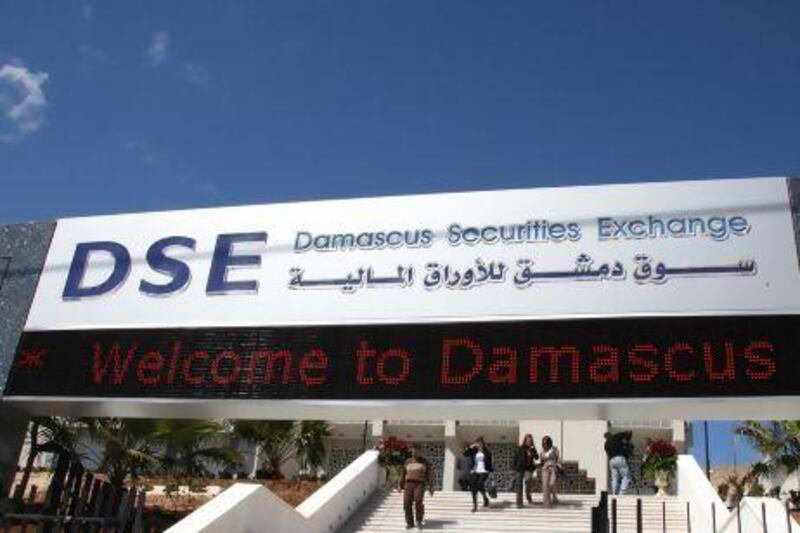The head of Syria's stock market says the bourse has made adequate contingency plans to enable the continuity of its operations in the event of a US-led military strike.
"Since the unrest began two years ago, we have strengthened our business continuity operations and made sure that the exchange can be operated remotely," said Mamoun Hamdan, the chief executive at the Damascus Securities Exchange (DSE) in a telephone interview.
"I can assure you, that if there is an attack, we will remain open for business, and investors will continue to trade their shares. As long as the internet is working and the central bank is running, then we are OK."
Last year, officials at the bourse in Damascus bought batteries, computers and other essential portable infrastructure equipment in an attempt to ensure trading would continue in the event of a large-scale emergency, such as an aerial bombardment or other military attack.
In October, the exchange advertised a tender to purchase batteries, in an effort to ensure that generators are able to provide power in the event of an extended blackout or a shortage of fuel during an emergency. The bourse also bought IT infrastructure to operate and back up investor and market data to be stored both in Syria and abroad.
Twenty stocks are listed on the DSE, 12 of them banks, with the rest from the insurance, services, industrial and agriculture sectors.
Trading activity has surged of late as investors buy into shares to hedge against the country's plummeting currency.
Shares listed on the DSE have risen by as much as 55 per cent this year, after the index touched a low of 768.37 points on January 7. The exchange had 42 trades yesterday.
The drop in the Syrian pound - the world's steepest currency decline this year - has prompted Syrians to look for alternative methods to maintain the value of their assets amid restrictions on foreign currency and remittances abroad.
The pound has fallen against the US dollar, trading at 112.9 pounds to the dollar yesterday, compared to 47 pounds before the outbreak of hostilities.





